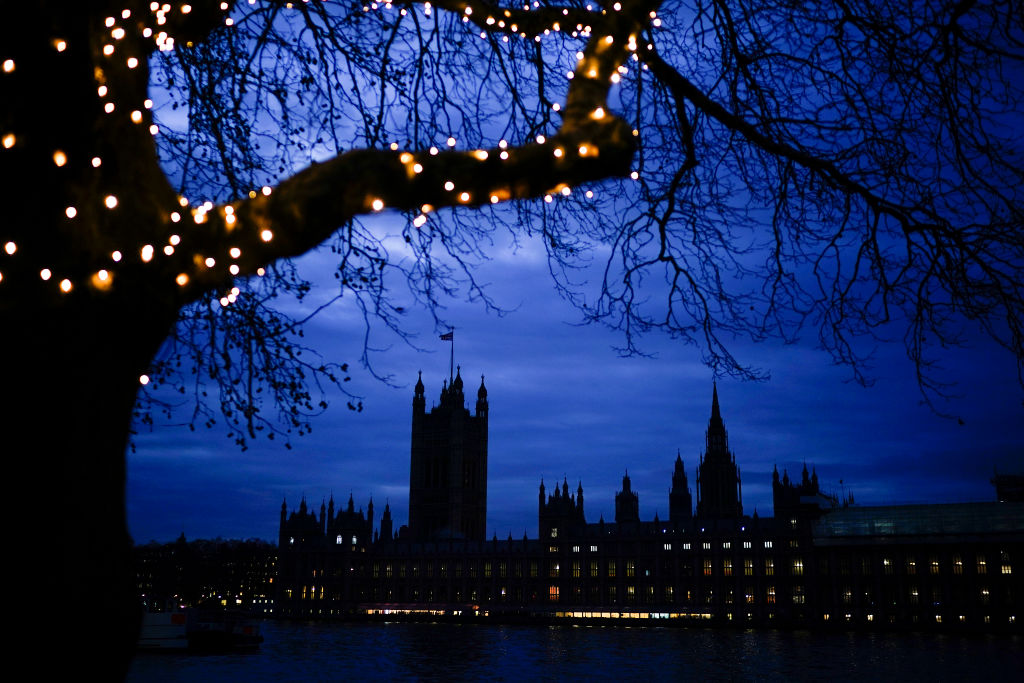Christmas in Britain means misery not merriment. It’s why I prefer France, which doesn’t shut down lock, stock and bauble. This year I’ll be in Aveyron, as profonde as La France profonde can be, and the highlight will be the Quine – that’s Bingo to Brits – which starts at 4pm on Christmas Day in the village hall. It’s an annual event organised by the local rugby club and it pulls in punters from dozens of outlying villages, all desperate to win one of the prizes on offer. You know you’re in France when the prize-winner who gets the most envious glares isn’t the one who scoops the flat-screen TV but the lucky devil who makes off with the hind leg of ham.
The thing about Christmas in France is that it is mercifully short, starting roughly at 4pm on Christmas Eve and ending at 6am the next day. Last year in Paris I was woken on Christmas morning by the binmen going about their business at 7am, and an hour later I was in the boulangerie buying bread. I took the metro and met friends for lunch in a restaurant and finished the day in the cinema.
Christmas in France in social; in Britain, it’s anti-social. Restaurants, bars and shops pull down the shutters, and the drivers of tubes, buses and trains put up their feet. Face it, you have more chance of seeing Santa coming down the chimney than you do a train coming down the line. The Paris metro runs on Christmas Day, as does the New York subway and the Berlin U-bahn, but not the London Underground, which this year begins to close down from 3pm on Christmas Eve.
In the city that its mayor, Sadiq Khan, likes to boast is the ‘the best’ in the world, there are no tubes, trains or buses on Christmas Day, and nor are there any London Overground trains on Boxing Day. In total, only five of 30 train operators in the UK are running a skeleton service on December 26; outside the southeast no trains will be seen. Talk about a two-fingered salute to tourists wanting to see some of the country at Christmas, not to mention the inconvenience caused to families wishing to get together.
It didn’t used to be like this. In 1868, for example, the Times said that “central London showed a growing tendency to disregard the holyday period altogether”. Half a century later it was still much like any other time of the year. In 1913, the Times reported that on Christmas Eve “suburban shopkeepers were kept busy until midnight…and the chief railway stations were as thronged as the shopping thoroughfares”. There were special night trains laid on, “never so well filled”, and trains left regularly from Charing Cross bound for the continent.
On Christmas Day, stated the Times, there was a full programme of football fixtures in the morning and “the postmen had ended their rounds with a first delivery which the householder was fortunate to get by noon [while] the omnibus drivers were free to return to their garages at 5 o’clock”.
There was another full programme of football matches on Boxing Day, and also on December 27. So, for example, Liverpool hosted Manchester City on Christmas Day, played them in Manchester the following day and on December 27 entertained Blackburn Rovers at Anfield. Three matches in three days! And to think Manchester City’s current manager, Pep Guardiola, complained last Christmas that four matches in eleven days would “kill the players”.
Christmas indolence started to get serious in the sixties, proof that not everything swung in that decade. The Times reported on December 24, 1968, that “millions of Britain’s industrial workers will have this Friday [27th] as an extra day’s holiday this Christmas”. Describing it as a “new” development, the paper remarked that John Davies, the director of the CBI, was in favour of longer winter holidays, and that this year British industry would enjoy “a five-day shutdown”.
There were trains but no longer did they belong to the efficient network of 1913 staffed by competent men and women who cared about the welfare of their passengers. The Southern Region of British Railways was brought to a halt by a touch of frost on Christmas night of 1968, stranding thousands of passengers on Boxing Day. They were left shivering on platforms, waiting for information that wasn’t forthcoming. Sound familiar?
The railway network stopped operating a full service on Boxing Day in 1979 in order to cut costs, and since then trains, like snow, have become increasingly rare at Christmas.
True, the festive season this year in France has been more yellow than white but even with all the protests life goes on. On the other side of the Channel nothing is open, except churches, but in atheist Britain who goes to church on Christmas Day?







Comments